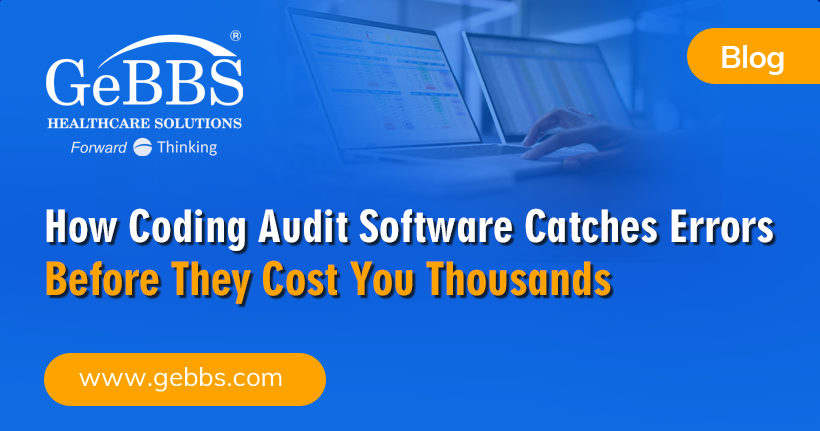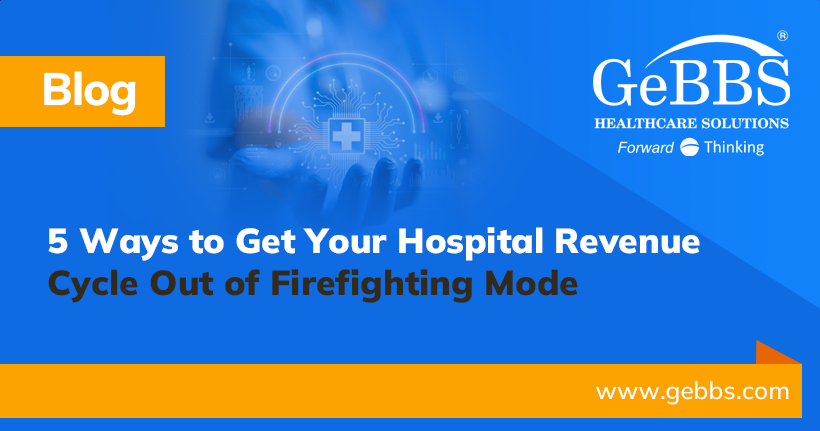Abstraction in healthcare is a crucial process that involves extracting meaningful information from patient medical records and clinical data to enhance patient outcomes and overall healthcare efficiency. This process is critical for converting raw data into usable insights that healthcare providers can utilize to make informed decisions. Medical record data abstraction involves reviewing and extracting specific data elements from patient records, which can then be used for various purposes, including quality improvement and compliance reporting.
Accurate clinical data abstraction is essential for providing high-quality patient care and ensuring operational efficiency. It helps identify trends and patterns in patient care, which can significantly improve patient outcomes. Additionally, quality abstraction is fundamental for research, monitoring clinical performance, and meeting regulatory requirements.
The process of abstraction involves several key components, including data collection, processing, analysis, and reporting with feedback to ensure accurate and valuable data.
Key Components of Quality Abstraction
Data Collection
The key to producing high-quality abstractions is to gather data accurately and comprehensively. This data encompasses clinical information, patient records, and other pertinent health metrics. Data collection primarily occurs through two methods: manual and automated. Manual collection, while meticulous, is time-consuming and susceptible to human error. On the other hand, automated collection, utilizing technologies like electronic health records (EHRs) and AI, minimizes errors and boosts efficiency.
A quality abstraction process faces challenges such as data standardization and integration from various sources. Overcoming these challenges is crucial for success. Data standardization involves establishing consistent rules for entering and encoding data. This can significantly improve data quality, accuracy, and reliability across systems. Standardized data collection can address messy, unreliable data issues, allowing for seamless data exchange and enhancing patient care.
Additionally, the absence of standardization can result in data fragmentation, making achieving interoperability and efficient data management challenging. Establishing common data management and sharing standards is crucial to overcoming these challenges, improving data integration, and ensuring accurate and timely patient information. This standardization can significantly improve data accuracy and operational efficiency, ultimately enhancing the quality of healthcare delivery.
By addressing these challenges through robust data standardization practices, healthcare organizations can guarantee that patient data is accurate, comprehensive, and easily accessible, thus driving better clinical decisions and improving patient outcomes.
Data Processing
Once data is collected, it needs to be processed to ensure accuracy and consistency. This involves cleaning and normalizing the data to remove any discrepancies. Maintaining data integrity during processing is crucial, as it directly affects the quality of the analysis that comes after. Data cleaning involves fixing or removing incorrect, corrupted, duplicate, or incomplete data in a dataset to ensure reliable insights and analyses. Without proper data cleaning, analyses may be flawed, leading to incorrect conclusions and decisions.
Data normalization is essential for accurate data analysis. It transforms multi-scaled data to a standard scale, ensuring no single variable disproportionately influences the analysis’s outcomes. This improves the stability and performance of data models. Ensuring data accuracy and consistency through these steps makes the data more useful and reliable for later analyses, ultimately enhancing decision-making processes in healthcare.
Data Analysis
Data analysis is the stage where the collected and processed data is examined to extract valuable insights. Analytical tools and methods, including statistical analysis and machine learning algorithms, are employed to understand patterns and trends within the data. Accurate data analysis is vital for identifying areas of improvement and implementing effective quality improvement initiatives. For instance, analyzing patient outcomes and treatment efficacy can lead to better clinical practices and improved patient care.
Leveraging data analytics in healthcare can reduce readmission rates and improve patient outcomes. In one study, predictive analytics helped prevent 200 patient readmissions and resulted in $5 million in cost savings. Healthcare providers can reduce readmission rates and improve patient outcomes by identifying high-risk patients and developing targeted interventions. This approach addresses clinical challenges and considers behavioral health and social determinants of health to ensure comprehensive care.
Reporting and Feedback
The final component of the quality abstraction process is creating actionable reports based on the analyzed data. These reports are crucial for healthcare providers, as they highlight key areas for improvement and provide feedback on current practices. Actionable healthcare performance indicators are essential for guiding decision-making across patient care, organizational management, and policy development. Delivering these insights to healthcare providers helps drive continuous quality improvement initiatives by making informed decisions that enhance patient care and operational efficiency.
Effective reporting ensures that the insights gained from data analysis are translated into tangible improvements in patient care. By utilizing performance indicators and comprehensive reporting mechanisms, healthcare organizations can systematically track progress, identify deficiencies, and implement corrective measures to achieve better clinical outcomes and higher compliance with clinical guidelines.
Technologies Enhancing Quality Abstraction
Artificial Intelligence and Machine Learning
Artificial Intelligence (AI) and Machine Learning (ML) have transformed the process of quality abstraction by automating data collection and analysis. These technologies can rapidly process large amounts of data, identify patterns, and offer insights that would be unattainable for humans alone. AI-driven insights are more accurate and can reveal hidden correlations in the data, leading to improved decision-making and better patient outcomes.
Machine learning algorithms can analyze historical data to identify trends and suggest improvements in clinical practices. AI-driven solutions have enabled healthcare systems to cut readmission rates by monitoring readmission data, creating customized solutions, and ensuring plan of care compliance.
Robotic Process Automation
Robotic Process Automation (RPA) is another technology that has significantly impacted the quality abstraction process in healthcare. RPA automates repetitive tasks, such as data entry and extraction, freeing healthcare professionals to focus on more critical aspects of patient care. By streamlining these tasks, RPA enhances efficiency and reduces the likelihood of errors.
RPA has played a key role in automating various healthcare processes, resulting in increased productivity and decreased administrative costs. By implementing RPA, the healthcare industry has significantly improved data quality and operational efficiency. It improves data accuracy, completeness, and timeliness, which are essential for maintaining high standards of patient care. By automating routine processes, healthcare organizations can ensure more accurate data handling and better resource allocation, ultimately improving patient outcomes.
Challenges and Future Directions
Current Challenges in Quality Abstraction
Despite technological advancements, there are still many challenges in quality abstraction processes. Due to the sensitivity of healthcare data, data privacy and security are major concerns. It is crucial to protect data during collection, processing, and analysis. The Health Insurance Portability and Accountability Act (HIPAA) provides guidelines for maintaining data security, but many organizations still need to work on implementing these guidelines effectively.
Another challenge in healthcare is integrating different data sources while eliminating data silos. Healthcare data comes from various systems and formats, which makes integration a complex task. For quality abstraction initiatives to be successful, it’s essential to ensure stakeholder engagement and buy-in. Without the support of all stakeholders, it can be difficult to implement and maintain these initiatives. Data integration in healthcare is crucial for obtaining a comprehensive view of patient health, but the lack of standardization and interoperability between systems often hinders it.
Future Trends and Innovations
The future of quality abstraction looks promising, with emerging technologies set to enhance the process further. Innovations such as blockchain, advanced predictive analytics, and more sophisticated AI algorithms will play a significant role. Blockchain technology provides a secure and decentralized way to exchange healthcare data, improving data integrity and privacy. Blockchain’s key features—security, transparency, and immutability—make it an effective tool for enhancing care coordination and reducing data discrepancies and fraud.
Healthcare providers must stay updated with these trends and invest in the necessary technologies to stay ahead. Adopting these innovations can significantly improve the quality abstraction process, ultimately enhancing patient care and operational efficiency.
Advancing Quality Abstraction with GeBBS Healthcare Solutions
Quality abstraction is a vital process in healthcare that ensures accurate data collection, processing, analysis, and reporting. Advanced technologies, such as AI and Robotic Process Automation (RPA), have significantly improved the efficiency and accuracy of this process. GeBBS Healthcare Solutions is a leading technology-enabled Revenue Cycle Management company at the forefront of these advancements with a range of technologies aimed at simplifying quality abstraction.
GeBBS Healthcare Solutions, one of the largest healthcare RCM companies, offers technology-driven solutions for healthcare organizations. Their iCode Risk Adjustment (iCRA) solution is a comprehensive coding software platform designed to help payers perform risk adjustment and HEDIS initiatives efficiently. It provides real-time dynamic reporting, actionable data, and full transparency, streamlining workflows and improving productivity and quality for government payers and risk-bearing providers.
The iCRA platform addresses critical payer pain points with features such as intuitive chart retrieval, concurrent review capabilities, and real-time troubleshooting for irretrievable charts. This technology reduces in-house technology costs by 50%, increases productivity by 30%, and identifies 20% higher risk factors, resulting in a 10% increase in conditions identified during the first level of review.
A key benefit of GeBBS’ iCRA platform is its ability to improve the risk adjustment workflow for both government payers and risk-bearing providers. The platform integrates provider-sensitive processes, making compliance with processes convenient and flexible while being HIPAA-compliant and secure. It also provides real-time monitoring of chart retrieval status and exception distribution, ensuring complete project control. Its functionalities include drag-and-drop capability, EMR CCD data exchange, onsite retrieval, fax, and mail options, enhancing efficiency and accuracy.
By implementing GeBBS’ iCRA technology, healthcare organizations can streamline their quality abstraction processes, improving patient outcomes and overall healthcare efficiency. Investing in these advanced technologies is crucial for any healthcare provider aiming to enhance their quality abstraction and remain competitive in the constantly changing healthcare industry.
Discover how GeBBS Healthcare Solutions can streamline your quality abstraction process. Visit GeBBS.com today.






